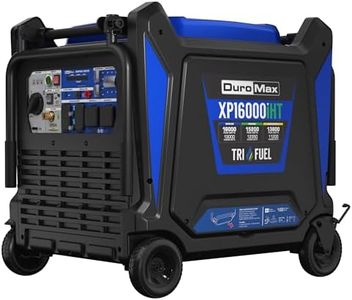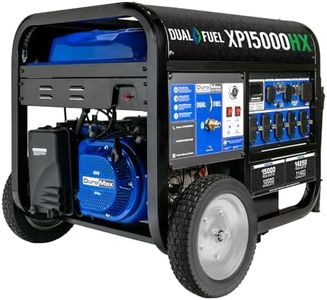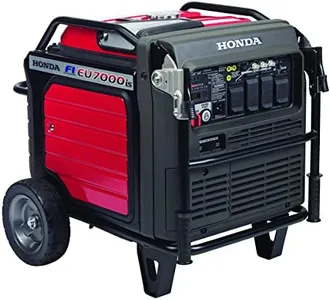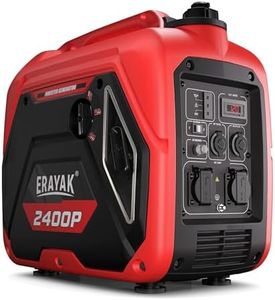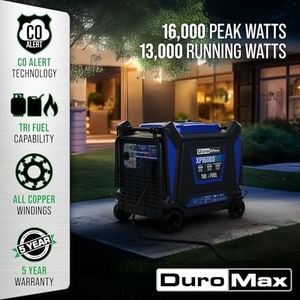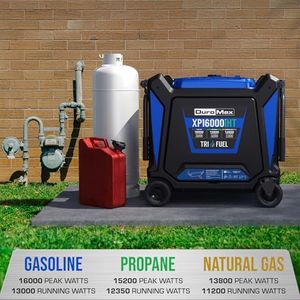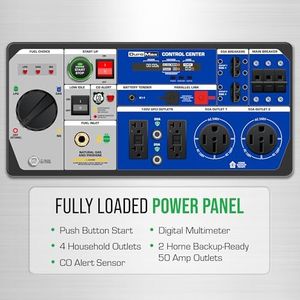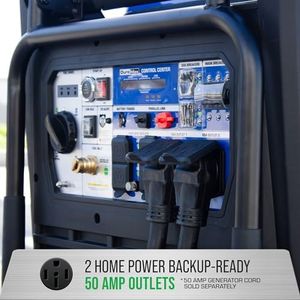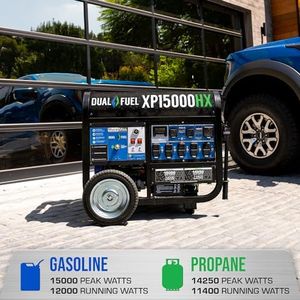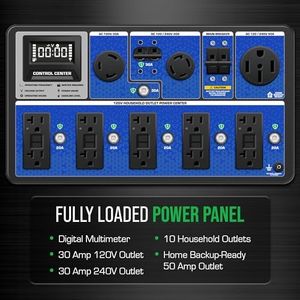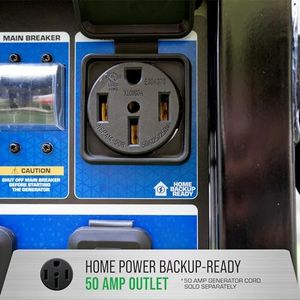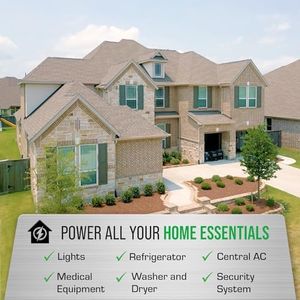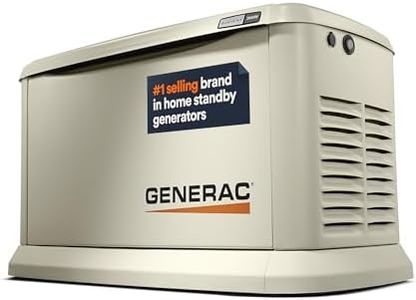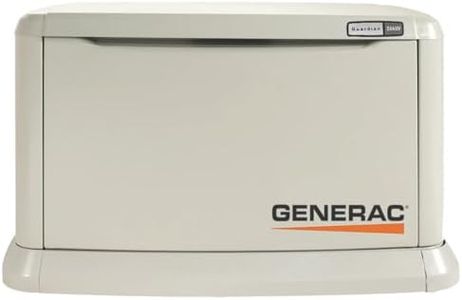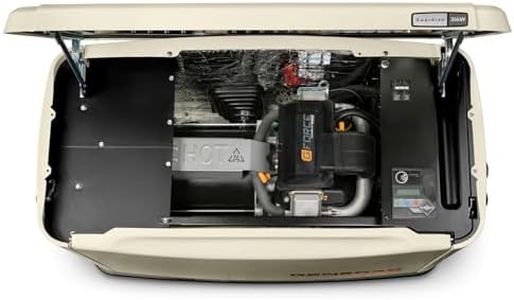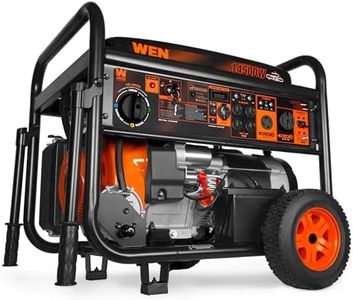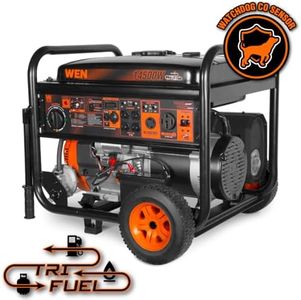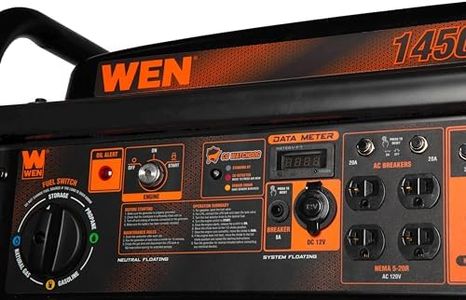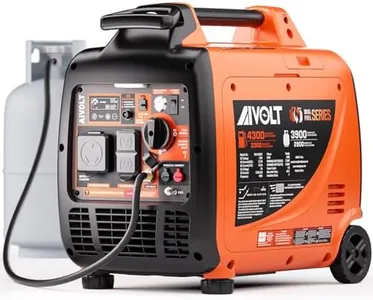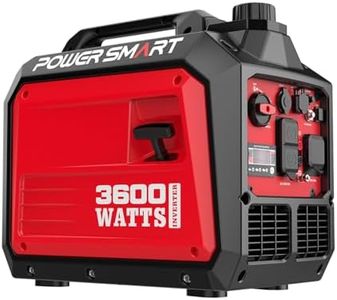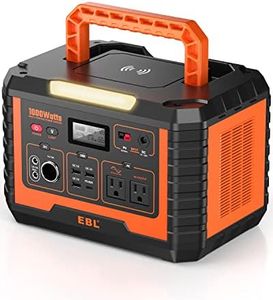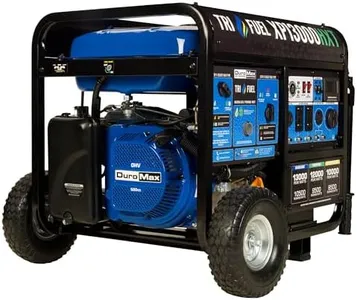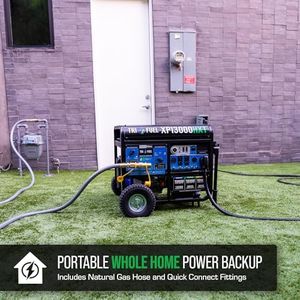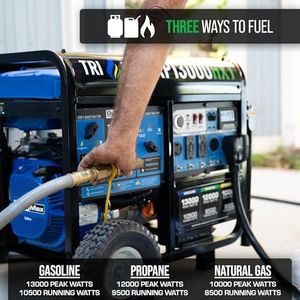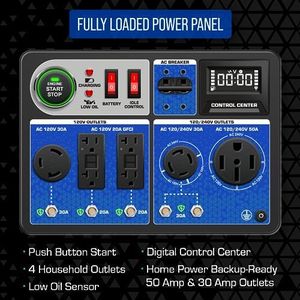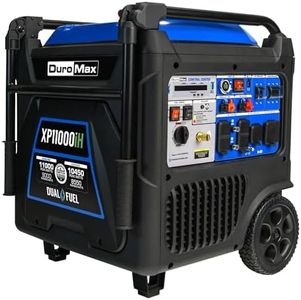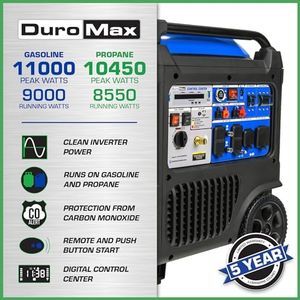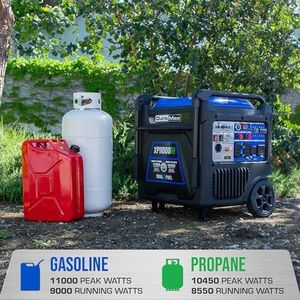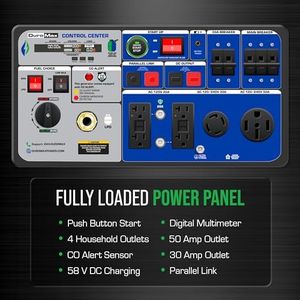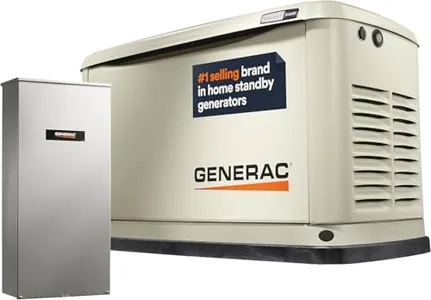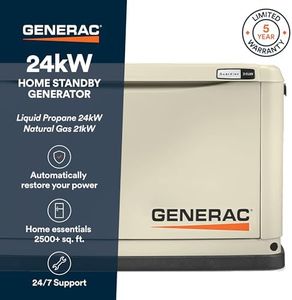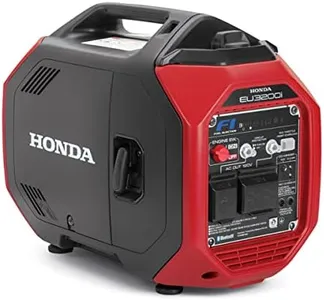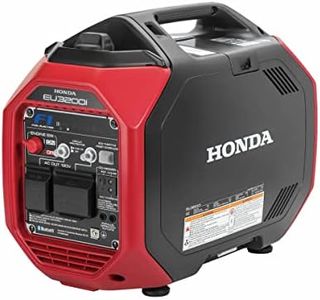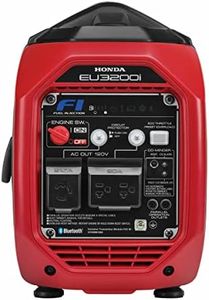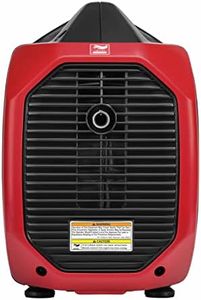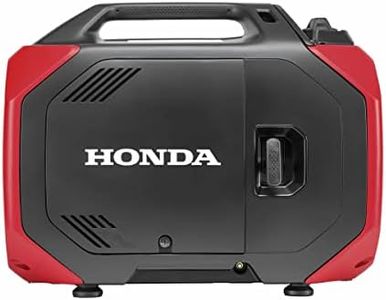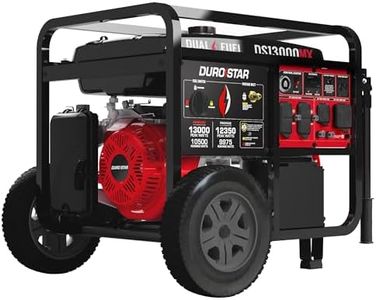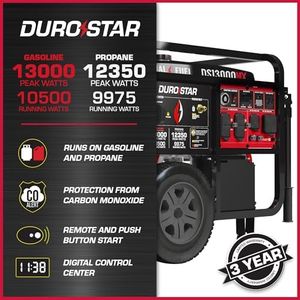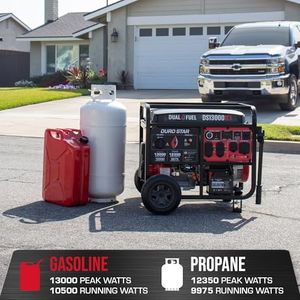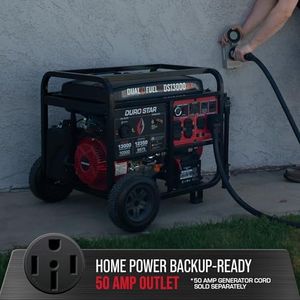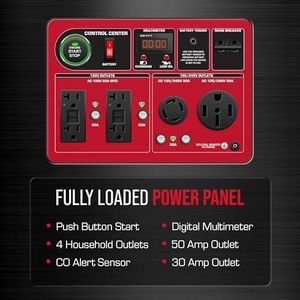10 Best Generators 2026 in the United States
Winner
DuroMax XP16000iHT 16,000-Watt Tri Fuel Portable Digital Inverter Generator - Gas, Propane & Natural Gas, Remote Electric Start, Whole Home Power Backup, Transfer Switch Ready, RV & Emergency Ready
The DuroMax XP16000iHT is a powerful tri-fuel generator offering up to 16,000 watts of starting power and 13,000 watts running power, making it suitable for whole home backup, RVs, or job sites. Its ability to run on gasoline, propane, or natural gas provides great fuel flexibility, which is useful if you want options during emergencies or changing fuel availability. The generator includes two 50-amp outlets, allowing easy connection to a home transfer switch or generator interlock, perfect for powering multiple appliances or an entire house.
Most important from
192 reviews
DuroMax XP15000HX 15,000-Watt Dual Fuel Portable Generator - Gas & Propane, Remote Electric Start, Whole Home Power Backup, Transfer Switch Ready, RV & Emergency Ready
The DuroMax XP15000HX is a powerful dual fuel generator delivering up to 15,000 starting watts and 12,000 running watts, making it well-suited for whole-home backup during outages or heavy-duty commercial use. Its ability to run on both gasoline and propane offers flexibility—propane is cleaner, lasts longer in storage, and is easy on maintenance. The generator features a large 670cc engine with all-copper windings, which means it’s built for durability and long-term use. Starting it is simple with a push-button remote electric start, and switching between fuels is quick thanks to a front-facing fuel selector. The control panel is user-friendly, showing important information like voltage and maintenance hours on a digital meter.
Most important from
2374 reviews
Honda EU7000IS 7,000 Watt Inverter Portable Backup Generator, Super Quiet, Electric Start
The Honda EU7000IS is a powerful inverter generator that boasts a starting wattage of 7,000 watts and a running wattage of 5,500 watts, making it suitable for home backup power, RVs, and outdoor events. It runs on fuel and features a super quiet operation, which is great for residential areas or camping sites where noise can be a concern. The generator includes an electric start, which simplifies the startup process, and it also offers Bluetooth capability through the Honda My Generator app for remote monitoring and control. Additionally, it comes with an advanced CO-MINDER system to detect harmful carbon monoxide levels, enhancing safety.
Most important from
28 reviews
Top 10 Best Generators 2026 in the United States
Winner
DuroMax XP16000iHT 16,000-Watt Tri Fuel Portable Digital Inverter Generator - Gas, Propane & Natural Gas, Remote Electric Start, Whole Home Power Backup, Transfer Switch Ready, RV & Emergency Ready
DuroMax XP16000iHT 16,000-Watt Tri Fuel Portable Digital Inverter Generator - Gas, Propane & Natural Gas, Remote Electric Start, Whole Home Power Backup, Transfer Switch Ready, RV & Emergency Ready
Chosen by 1173 this week
DuroMax XP15000HX 15,000-Watt Dual Fuel Portable Generator - Gas & Propane, Remote Electric Start, Whole Home Power Backup, Transfer Switch Ready, RV & Emergency Ready
DuroMax XP15000HX 15,000-Watt Dual Fuel Portable Generator - Gas & Propane, Remote Electric Start, Whole Home Power Backup, Transfer Switch Ready, RV & Emergency Ready
Honda EU7000IS 7,000 Watt Inverter Portable Backup Generator, Super Quiet, Electric Start
Honda EU7000IS 7,000 Watt Inverter Portable Backup Generator, Super Quiet, Electric Start
Generac Guardian 26kW Home Standby Generator - Automatic Whole House Backup Power for Storms, Emergencies, and Outages, WiFi Enabled, Runs on Natural Gas or Liquid Propane, Quiet Operation
Generac Guardian 26kW Home Standby Generator - Automatic Whole House Backup Power for Storms, Emergencies, and Outages, WiFi Enabled, Runs on Natural Gas or Liquid Propane, Quiet Operation
WEN 14,500-Watt 120V/240V Tri-Fuel Generator for Gas, Propane, and Natural Gas, Transfer-Switch Ready with Electric Start, Wheel Kit, and CO Watchdog (TF1450X)
WEN 14,500-Watt 120V/240V Tri-Fuel Generator for Gas, Propane, and Natural Gas, Transfer-Switch Ready with Electric Start, Wheel Kit, and CO Watchdog (TF1450X)
DuroMax XP13000HXT 13,000-Watt 500cc Tri Fuel Gas Propane Natural Gas Portable Generator with CO Alert, Black/Blue
DuroMax XP13000HXT 13,000-Watt 500cc Tri Fuel Gas Propane Natural Gas Portable Generator with CO Alert, Black/Blue
DuroMax XP11000iH 11,000-Watt Dual Fuel Portable Digital Inverter Generator - Gas & Propane, Remote Electric Start, Transfer Switch Ready, RV & Emergency Ready
DuroMax XP11000iH 11,000-Watt Dual Fuel Portable Digital Inverter Generator - Gas & Propane, Remote Electric Start, Transfer Switch Ready, RV & Emergency Ready
Generac Guardian 24kW Home Standby Generator with 200 Amp Transfer Switch - Automatic Whole House Backup Power for Storms, Emergencies, and Outages, WiFi Enabled, Runs on Natural Gas or Liquid Propane
Generac Guardian 24kW Home Standby Generator with 200 Amp Transfer Switch - Automatic Whole House Backup Power for Storms, Emergencies, and Outages, WiFi Enabled, Runs on Natural Gas or Liquid Propane
Honda 665740 EU3200i 3200 Watt Bluetooth Portable Inverter Generator 49-State
Honda 665740 EU3200i 3200 Watt Bluetooth Portable Inverter Generator 49-State
DuroStar DS13000MX 13,000-Watt 500cc Dual Fuel Portable Generator - Gas and Propane, Remote Electric Start, Whole Home Power Backup, Transfer Switch Ready, RV & Emergency Ready
DuroStar DS13000MX 13,000-Watt 500cc Dual Fuel Portable Generator - Gas and Propane, Remote Electric Start, Whole Home Power Backup, Transfer Switch Ready, RV & Emergency Ready
Our technology thoroughly searches through the online shopping world, reviewing hundreds of sites. We then process and analyze this information, updating in real-time to bring you the latest top-rated products. This way, you always get the best and most current options available.

